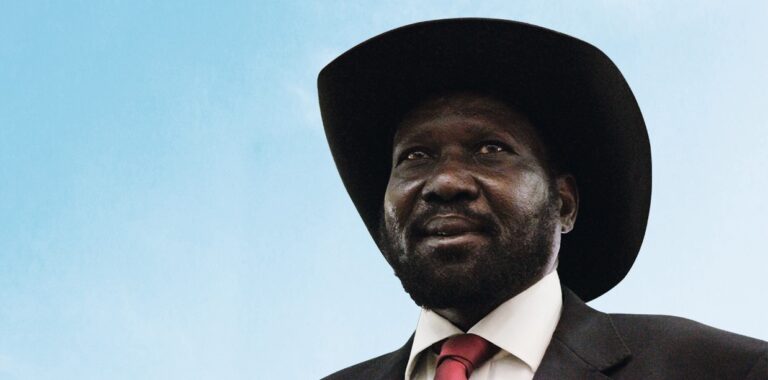South Sudan’s President Salva Kiir has appointed a member of his own party as governor of Western Equatoria state, according to a decree read on state-owned media, breaching a peace deal that stipulates the role should be filled by the party of First Vice President Riek Machar.
The position has been vacant for nearly six months since the opposition SPLM-IO-appointed governor was ousted.
President Kiir dismissed Governor Alfred Futuyo Karaba, who also serves as Machar’s top military commander in Western Equatoria, on February 10, a move that reignited disputes over power-sharing between the two leaders.
Days after Futuyo’s removal, supporters of the ruling SPLM in parts of Western Equatoria demanded that the state’s leadership revert to the SPLM rather than remain under Machar’s SPLM-IO.
Western Equatoria, where violence persists in some counties, has been governed by a deputy governor for several months.
Kiir and Machar signed a peace agreement in 2018, ending a five-year civil war that killed 400,000 people. However, implementation has stalled since Machar was placed under house arrest in Juba on March 26, and sporadic fighting continues to displace and kill civilians.
According to the decree broadcast on state TV late Thursday, Kiir replaced Futuyo with James Al-Tayib Jazz Birapai, a loyal SPLM member and prominent Juba-based barrister.
“The appointment of a member of the SPLM as governor of Western Equatoria state is unilateral and a new blatant violation of the peace agreement,” said Joseph Malwal Dong, a senior SPLM-IO official. He added that they had not recommended any replacement.
Malwal, who heads the SPLM-IO’s international relations committee, told Radio Tamazuj that their attempts to meet with the president to salvage the peace agreement have so far failed.
However, Edmund Yakani, a civil society activist and executive director of the Community Empowerment for Progress Organization (CEPO), welcomed Al-Tayib’s appointment.
“At this critical moment, when the state faces ethnic and politically motivated armed violence, the new governor, James, must prioritize peace and stability,” Yakani told Radio Tamazuj.
“CEPO is ready to work with the new leadership to make peace and stability a priority. The governor must distance himself from the tribal politics of the state elites, which are deadly,” he added.
Yakani also expressed concern over violations of the consultation process meant to build consensus on implementing the peace agreement, saying the replacement of SPLM-IO-held gubernatorial seats in Upper Nile and Western Equatoria states without agreement undermines the deal.
“Even the transfer of Jonglei state’s seat from the South Sudan Opposition Alliance (SSOA) to the ruling SPLM party violates the agreement,” he added.
Yakani also accused the government of fueling divisions within the opposition SPLM-IO, further eroding the agreement’s spirit.
He urged the African Union Peace and Security Council—expected to send a delegation to Juba—to push for inclusive political dialogue. “The ongoing violations by the SPLM are jeopardizing the future of the peace agreement,” he warned.
Meanwhile, Ter Manyang Gatwech, executive director of the Centre for Peace and Justice, called Kiir’s move a breach of the 2018 peace deal.
“Perhaps the president is no longer interested in implementing the peace agreement. Consider the current pressure, South Sudanese communities are demanding Machar’s unconditional release,” Manyang said.
“If someone truly wanted peace, they wouldn’t keep igniting fire after fire. Western Equatoria is complex—the new governor won’t resolve the conflict, which involves the opposition, the government, and other factions.”
Previous mediation efforts by regional and foreign diplomats to resolve the rift between Kiir and Machar have apparently failed.
The deadlock risks derailing the implementation of the peace deal, which was meant to pave the way for national elections by December 2026.




